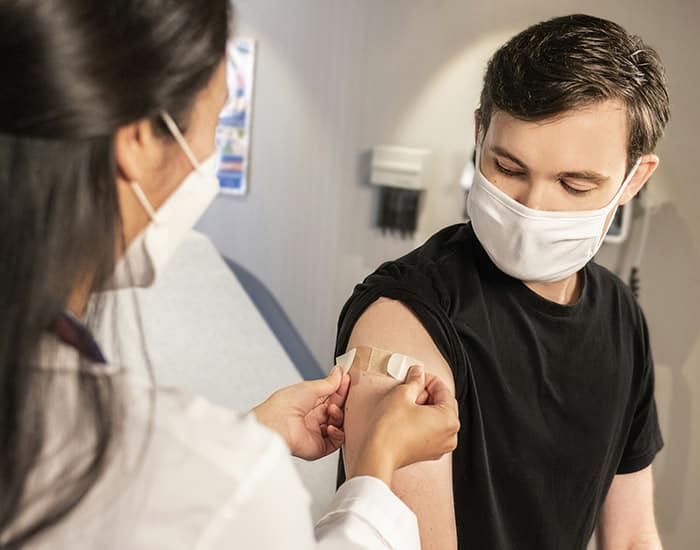What is a “booster”?: “Boosters” are additional vaccine doses that you get after receiving a primary vaccine dose to increase immune protection against that specific illness. The term vaccine “booster” has been used broadly in public health across many vaccines.
What is the difference between a vaccine “booster” and an updated vaccine? “Boosters” typically have the same formula as their primary vaccine dose, and they remind the immune system of what virus or bacteria to protect you against. Updated vaccines, like the annual flu vaccine, have formula changes compared to the original vaccine dose that increase its effectiveness against new circulating strains.
As research improves our understanding of COVID-19, health agencies are now recommending updated vaccines instead of boosters. People who got the original COVID-19 vaccine series needed a “booster” when the original strains were still dominant. Now that new substrains have become dominant, updated vaccines are needed to specifically target the new dominant strains and maintain protection from COVID-19.
Who can get “boosters”?: COVID-19 “boosters” are not available now that updated COVID-19 vaccines have been modified to target dominant virus strains. People who were previously eligible for a booster may now be eligible for an updated vaccine.
Who can get updated COVID-19 vaccines? Everyone should complete their age-appropriate, updated vaccine series. Updated Pfizer-BioNTech and Moderna vaccines are available for individuals as young as six months old. Updated Novavax vaccines are available for individuals age 12 and older. For the best protection this respiratory virus season, everyone should receive at least one dose of the updated vaccine.
It is safe to get any of the authorized and updated vaccines, regardless of whether your primary series or most recent dose was the Pfizer-BioNTech, Moderna, Novavax, or Janssen/Johnson & Johnson vaccine. However, for children age six months to four years old, the CDC recommends receiving the same brand as the entire primary series, if available.
When will updated vaccines be available? Updated COVID-19 vaccines should be available in your community by the end of December. The CDC recommends that everyone stay up-to-date on vaccinations by getting an updated vaccine dose at least two months after their last COVID-19 vaccination—either since their last dose, or since completing their primary series.
Updated December 14, 2023

